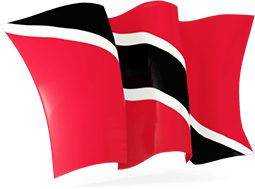

CODE OF ETHICAL POLITICAL CONDUCT
VERSION 2.0: JUNE 2019
The Code of Ethical Political Conduct came into being in July 2014 and is intended to achieve the following objectives:
-
Fostering of democracy through peaceful, free and fair elections conducted at regular intervals in which voters are permitted to cast their ballots freely, without interference, fear, intimidation or bribery.
-
Promotion of respect for human rights, the pursuit of civil and political liberties, the tolerance of divergent opinions, full and active participation of all in the political process.
-
Encouraging participation in the electoral process by the People and to uphold their right to make political choices.
-
Promoting an election process free from violence.
FOUNDING ORGANIZATIONS
The Code of Ethical Political Conduct was drawn up by various organizations representative of the society of Trinidad and Tobago. These organizations are signatories to the Code of Ethical Political Conduct. They are:
-
Anglican Church
-
Anjuman Sunnat-ul-Jamaat Association (ASJA)
-
Communication Workers’ Union/FITUN
-
Inter Religious Organization of Trinidad and Tobago (IRO)
-
Methodist Church
-
Network of NGOs
-
Presbyterian Church
-
Roman Catholic Archdiocese of Port of Spain
-
Sanatan Dharma Maha Sabha of Trinidad and Tobago (SDMS)
-
Trinidad and Tobago Chamber of Industry and Commerce
-
Trinidad and Tobago Publishers & Broadcasters Association (TTPBA)
-
Trinidad and Tobago Transparency Institute
THE COUNCIL FOR RESPONSIBLE POLITICAL BEHAVIOUR
Monitoring and evaluating adherence to the Code during national/local elections
This Council is a creation of the Code of Ethical Political Conduct. While the Council is tasked with monitoring and evaluating adherence to the Code, this function is however limited to the election period. For the purposes of the Code, the election period for national (general) elections is deemed to be the period of three months prior to the 5-year anniversary date of the first sitting of the Parliament (the date on which the Parliament automatically dissolves) or, should the Parliament be dissolved earlier, then the election period will be from the date of such dissolution. For local elections, in the case of the Tobago House of Assembly, unless the Assembly resolves to dissolve itself earlier, it would stand dissolved on the 4th year anniversary of its first sitting. Thus, the election period would be three months prior to the 4th year anniversary, or, in the event that the Assembly is dissolved earlier, the election period is at the time of dissolution. For Local Government elections in Trinidad, the same applies as for the Tobago House of Assembly, with respect to the start of the election period. For all elections the election period for the Council for Responsible Political Behaviour will be deemed to end six months after the poll.
Outside of the election period, the Council for Responsible Political Behaviour will only engage in educational and networking activities.
Council Members
-
Chair: Dr. Bishnu Ragoonath
-
Vice-Chair: Mr. Ralph Peter
-
Secretary: Ms. Leela Ramdeen
-
Dr. Beverly Ann-Marie Beckles
-
Dr. Gabrielle Hosein
-
Rev. Prof. Carlisle Pemberton
-
Mr. Gabriel Faria
-
Rev. Joy Abdul-Mohan
